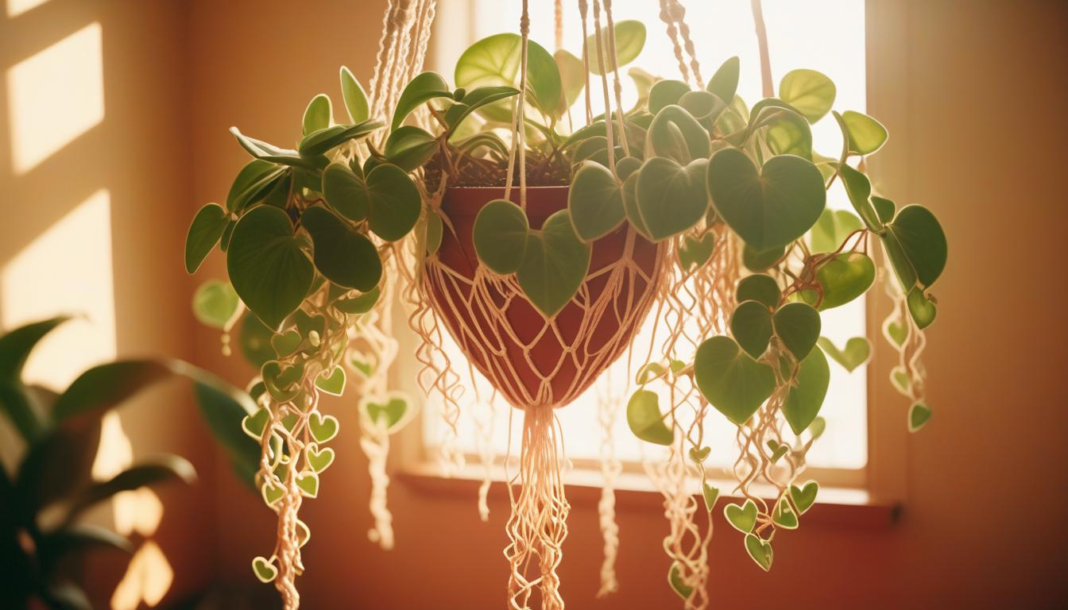The Science Behind Indoor Gardening: How It Boosts Mental Health
Imagine coming home after a long, stressful day at work. You step into your living room, and your eyes are immediately drawn to the lush greenery of your indoor garden. The vibrant leaves of your pothos cascade down the shelf, the delicate fronds of your fern sway gently in the breeze from the window, and the scent of fresh herbs from your kitchen garden fills the air. As you water your plants, you feel a sense of calm wash over you. This isn’t just a coincidence—it’s science. Indoor gardening has been proven to boost mental health in profound ways. Let’s explore the fascinating connection between plants and well-being, backed by scientific research.
The Healing Power of Plants: A Historical Perspective
Humans have always had an innate connection to nature. Ancient civilizations, from the Babylonians to the Egyptians, incorporated plants into their living spaces for both practical and spiritual reasons. The Hanging Gardens of Babylon, one of the Seven Wonders of the Ancient World, were not just a marvel of engineering but also a testament to humanity’s desire to bring nature closer to home.
Fast forward to the modern era, and we find ourselves increasingly disconnected from the natural world. Urbanization, long work hours, and screen-dominated lifestyles have left many of us feeling stressed, anxious, and overwhelmed. But science is now rediscovering what our ancestors intuitively knew: plants have the power to heal.
The Science of Indoor Gardening and Mental Health
1. Stress Reduction
One of the most well-documented benefits of indoor gardening is its ability to reduce stress. A study published in the Journal of Physiological Anthropology found that interacting with indoor plants can lower cortisol levels, the hormone associated with stress. Participants in the study who spent time tending to plants reported feeling calmer and more relaxed compared to those who performed computer-based tasks.
Why It Works: The act of caring for plants—watering, pruning, and even just touching the leaves—triggers a relaxation response in the brain. This is often referred to as “horticultural therapy.”
2. Improved Mood and Reduced Anxiety
Indoor plants can also have a significant impact on mood. Research from the University of Technology Sydney found that indoor plants can reduce feelings of anxiety and depression by up to 58%. The presence of greenery indoors has been shown to increase serotonin levels, the “feel-good” hormone.
Why It Works: Plants release phytoncides, natural compounds that have been shown to improve mood and reduce anxiety. Additionally, the color green has a calming effect on the brain, promoting feelings of tranquility.
3. Enhanced Focus and Productivity
If you’ve ever felt more focused after spending time in nature, you’re not alone. A study conducted by the University of Michigan found that being around plants can improve concentration and memory retention by up to 20%. This phenomenon, known as the “attention restoration theory,” suggests that nature provides a mental break from the constant stimulation of modern life.
Why It Works: Indoor plants help create a more serene environment, reducing mental fatigue and allowing your brain to recharge.
4. Better Air Quality, Better Sleep
Indoor plants like snake plants, peace lilies, and spider plants are natural air purifiers. They absorb toxins and release oxygen, improving air quality. Cleaner air can lead to better sleep, which is crucial for mental health. A study published in Environmental Health Perspectives found that improved air quality can reduce symptoms of depression and anxiety.
Why It Works: Better air quality means more oxygen to your brain, which can improve cognitive function and emotional well-being.
5. A Sense of Purpose and Accomplishment
Caring for plants gives you a sense of responsibility and accomplishment. Watching a seedling grow into a thriving plant can be incredibly rewarding. This is especially beneficial for individuals struggling with mental health issues like depression, where feelings of hopelessness and lack of purpose are common.
Why It Works: The act of nurturing something living provides a sense of purpose and can boost self-esteem.
Real-Life Stories: How Indoor Gardening Transformed Lives
Sarah’s Story: Finding Peace in Plants
Sarah, a 32-year-old marketing executive, struggled with anxiety for years. She tried therapy and medication, but nothing seemed to work. One day, on a whim, she bought a small succulent for her desk. Over time, her collection grew, and so did her sense of peace. “Tending to my plants became a form of meditation for me,” she says. “It’s like the stress just melts away.”
James’s Story: A New Lease on Life
After retiring, James felt lost and disconnected. He missed the structure and purpose that work provided. Then, his daughter gifted him a set of herb-growing kits. What started as a hobby soon became a passion. “Growing herbs gave me something to look forward to every day,” he shares. “It’s amazing how something so simple can bring so much joy.”
How to Start Your Indoor Garden for Mental Health
Tips for Getting Started
- Choose the Right Plants: Beginners should start with low-maintenance plants like pothos, snake plants, or succulents. If you’re interested in edible plants, herbs like basil, mint, and parsley are great options.
- Create a Dedicated Space: Designate a corner of your home for your plants. Use shelves, hanging planters, or windowsills to maximize space.
- Learn the Basics: Understand the light, water, and soil requirements of your plants. Apps like Planta can help you keep track of care schedules.
- Make It a Ritual: Spend a few minutes each day tending to your plants. Use this time to disconnect from screens and reconnect with yourself.
- Experiment and Have Fun: Don’t be afraid to try new plants or gardening techniques. The process of learning and growing is part of the joy.
The Future of Indoor Gardening and Mental Health
As the world becomes more urbanized, the importance of bringing nature indoors will only grow. Scientists are continuing to explore the mental health benefits of indoor gardening, with some even studying the potential of “biophilic design”—incorporating natural elements into architecture and interior design—to improve well-being on a larger scale.
In a world that often feels chaotic and overwhelming, indoor gardening offers a simple yet powerful way to find peace and balance. It’s a reminder that even in the midst of concrete jungles, we can create our own little oasis of calm.
Final Thoughts
Indoor gardening is more than just a trend—it’s a scientifically proven way to boost mental health. Whether you’re struggling with stress, anxiety, or simply looking for a way to add more joy to your life, plants can be your allies. So, why not start today? Pick up a plant, nurture it, and watch as it transforms not just your space, but also your mind and soul. After all, as the poet Ralph Waldo Emerson once said, “The earth laughs in flowers.” Let your home be a place of laughter and healing, one plant at a time.

